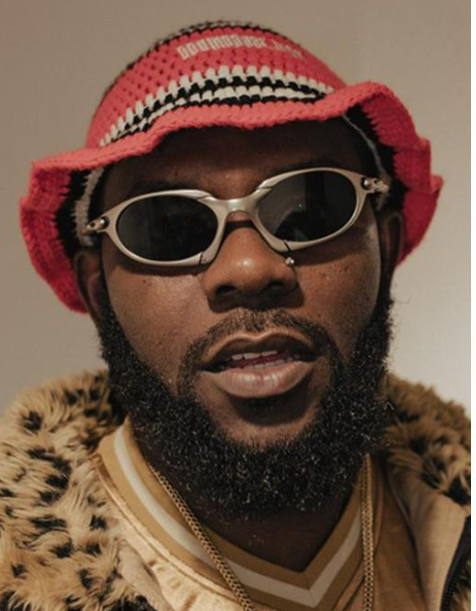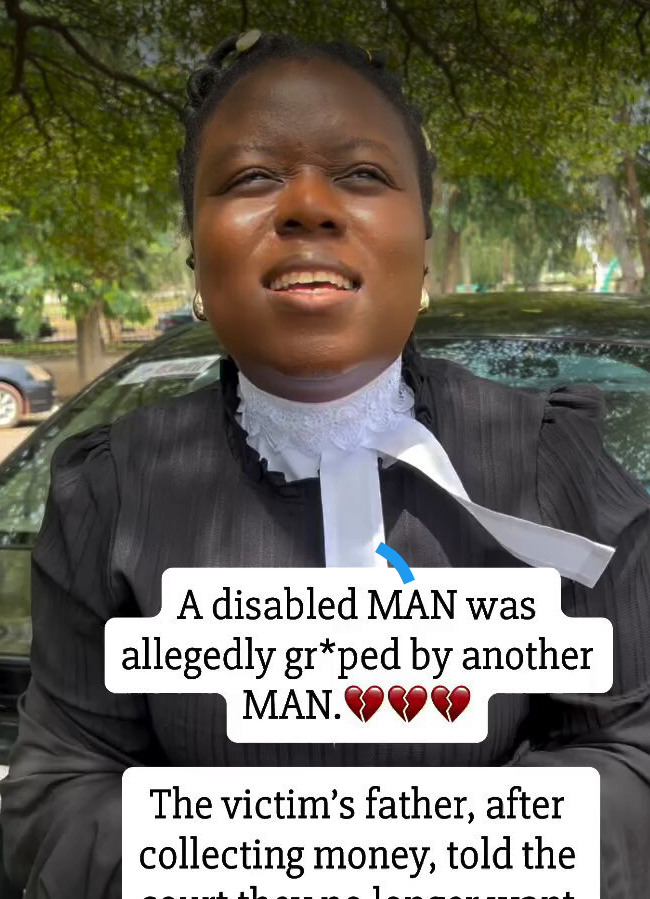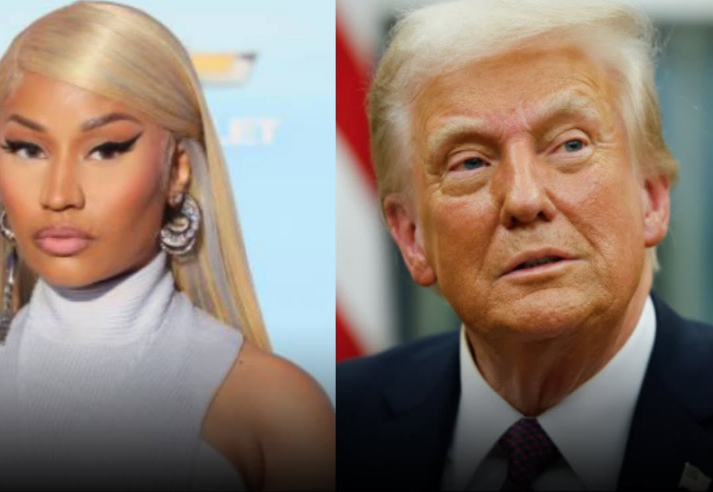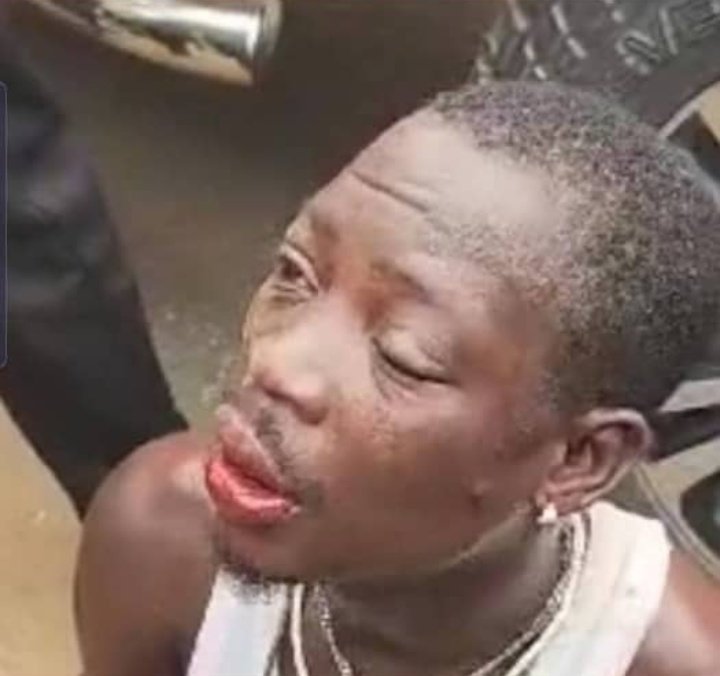
Odumodublvck Calls Out MI Abaga: “Short Man Devil, You Are Nothing But a Rat”

In a shocking turn of events that has sent ripples across the Nigerian music industry, rapper Odumodublvck has publicly called out veteran MC MI Abaga in what many are already calling one of the most explosive social media confrontations of the year. Known for his bold lyricism and unfiltered personality, Odumodublvck did not mince words in expressing his frustration and disappointment, taking to Twitter to air grievances that have left fans and industry insiders stunned. The feud, which appeared to have been simmering under the surface, erupted in full view of the public, showcasing a raw, unvarnished side of the Nigerian rap scene rarely seen in mainstream headlines.
The initial posts by Odumodublvck, who often goes by the moniker “Industry Machine,” were as direct as they were fiery. He began by addressing MI Abaga by name, calling him out for what he perceives as hypocrisy and moral cowardice. “The whole world is going to be so shocked that I am talking to you like this,” Odumodublvck tweeted, seemingly anticipating the backlash that would inevitably follow. He accused MI Abaga of being adept at “portraying the good guy” in public while allegedly standing on the sidelines when integrity and accountability were at stake. In his own words, Odumodublvck said, “One thing they didn’t tell you is that I don’t care about public opinion unlike you,” a statement that immediately drew attention to the contrast between the two artists’ approaches to fame and influence.
Odumodublvck escalated his attack in subsequent tweets, referencing a moment where MI Abaga, according to the younger rapper, chose to remain neutral in the face of a “blatant lie.” Odumodublvck was unambiguous in his condemnation, writing, “You stood in front of a blatant lie and decided to sit on the fence like Abuchi.” His choice of language—combining personal insult with metaphorical critique—struck a chord with his followers, many of whom praised his courage while others cautioned that public confrontations in the industry often come with consequences. The confrontation also highlights a deeper tension in Nigerian hip-hop, where veteran status and mentorship are frequently expected to come with guidance and protection for younger artists, yet Odumodublvck’s comments suggest that expectations have not been met.
The crescendo of Odumodublvck’s social media outburst was both dramatic and confrontational. “I have lost every iota of respect for you. I am coming out to the world. Short man devil. You no be my OG. You are nothing but a rat,” he wrote, leaving no room for ambiguity. By labeling MI Abaga a “short man devil” and a “rat,” Odumodublvck injected both personal disdain and industry critique into the discourse. His choice of words suggests not only disappointment but a fundamental rupture in respect and trust—a rupture that is now playing out publicly. For fans of both artists, this statement has become a flashpoint, sparking debates across social media platforms, including Twitter, Instagram, and TikTok, where users dissect every nuance of the feud.
Industry observers have noted that public feuds between established veterans and rising stars are not entirely new in Nigerian music, but the intensity of Odumodublvck’s comments is notable. MI Abaga, often regarded as one of the most influential figures in Nigerian hip-hop, has historically maintained a carefully curated public persona, one that emphasizes professionalism and mentorship. Odumodublvck’s critique challenges that carefully maintained image, suggesting that reputation alone cannot shield an artist from scrutiny when allegations of moral compromise or inaction emerge. The clash also raises questions about generational divides within the industry, with younger artists increasingly willing to call out perceived injustices and older figures having to navigate public accountability in ways that may differ from past norms.
Fans have been quick to weigh in, some siding with Odumodublvck, celebrating his bravery in confronting an artist widely respected for his contributions to Nigerian rap. Others have expressed concern, highlighting the potential fallout from publicly airing grievances in such a direct and accusatory manner. Comments like “Finally, someone is saying the truth” and “This could get messy” typify the polarized reactions, demonstrating that social media has become both a platform for transparency and a magnifier of conflict. Music critics have also pointed out that while Odumodublvck’s lyrical talent is widely acknowledged, the confrontation could overshadow artistic output if the focus shifts too heavily to interpersonal drama rather than creative contributions.
What makes this confrontation particularly riveting is the combination of personal attack and industry critique. Odumodublvck’s choice to use Twitter as the arena for his statements is strategic, capitalizing on the immediacy and viral potential of social media. In doing so, he has forced both MI Abaga and the public to confront uncomfortable questions about accountability, authenticity, and the responsibilities that come with influence. This is not merely a clash of egos; it is a challenge to the unspoken rules of mentorship, loyalty, and integrity within Nigeria’s music industry.
As of the time of writing, MI Abaga has not publicly responded to Odumodublvck’s allegations, a silence that many interpret in different ways. Some argue that restraint is a sign of wisdom, while others speculate that the lack of a response may be perceived as confirmation of the claims or, at the very least, as disengagement from a battle that could escalate quickly in the court of public opinion. In an era where social media can turn a single statement into a nationwide debate within minutes, the stakes are higher than ever for artists navigating both their craft and their reputations.
Beyond the immediate clash, Odumodublvck’s public call-out underscores a broader trend in Nigerian music where younger artists are increasingly assertive about their rights, grievances, and perspectives. It highlights the tension between respect for industry veterans and the desire for autonomy, transparency, and ethical conduct. Whether this feud will result in dialogue, reconciliation, or continued public sparring remains to be seen, but one thing is clear: Odumodublvck has made his position unmistakably clear, and the conversation is no longer private.
The unfolding drama between Odumodublvck and MI Abaga serves as a reminder that in the digital age, fame comes with constant scrutiny. Personal relationships, professional integrity, and public image are now inseparable from social media discourse, and artists must navigate this terrain carefully. While fans debate the merits of each side’s stance, the incident has already injected fresh energy into discussions about mentorship, respect, and accountability in the Nigerian music scene.
In conclusion, Odumodublvck’s bold confrontation of MI Abaga is a seismic moment for the industry, blending personal grievance, generational tension, and ethical critique in a way that has captivated audiences. By declaring, “I have lost every iota of respect for you. Short man devil. You are nothing but a rat,” he has set the stage for one of the most talked-about interactions in recent Nigerian music history. Whether MI Abaga responds or not, the impact of Odumodublvck’s statements is undeniable, leaving fans, critics, and industry insiders alike eagerly anticipating what comes next in this unfolding saga. In the ever-evolving landscape of Nigerian hip-hop, moments like these are a stark reminder that truth, confrontation, and transparency now hold as much power as talent itself.


